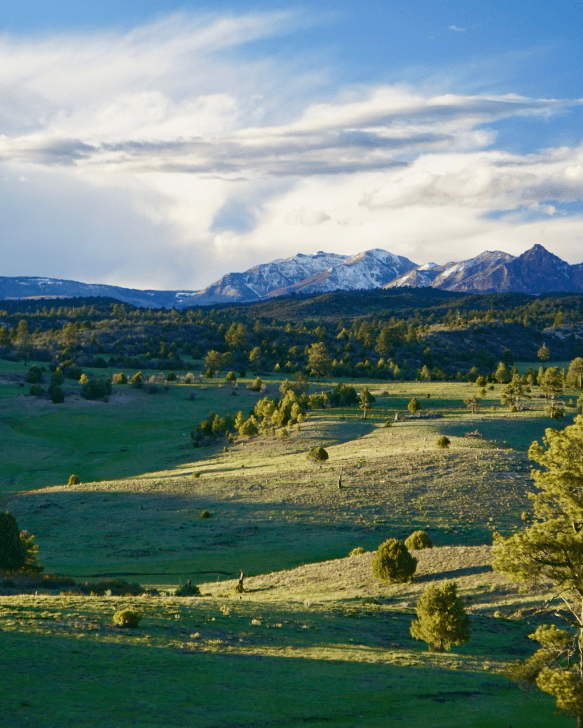Across the West, ranch real estate prices and valuation remain quite robust. Thankfully, taxes on ranches and agricultural land in the West are based on their agricultural values, not their real property value.
But there are things that owners of ranch real estate can do to reduce their tax burden, even when property assessments rise. All western states apply lower property tax rates to working farms and ranches under an agricultural assessment. If your ranch real estate is a working ranch or farm and produces agricultural products for market, you should qualify for these lower tax rates.

A working ranch and property taxes
All states are different, but most in the West have a simple set of guidelines for ranch owners to qualify for an agricultural assessment. Most requirements aren’t too onerous. Ranch real estate owners can, with a little planning and effort, meet the requirements.
For instance, in Colorado, a ranch owner needs only to meet one of five requirements to qualify for lower property assessments granted to agricultural lands. In other states, like Idaho, for instance, the requirements range from crop and livestock production to commodity storage.
In most Western states, requirements to meet agricultural assessments include (but are not limited to):
- Active crop or livestock production for the tax year and two (sometimes more) years before the tax year.
- Conservation of fish and wildlife habitat or open space through a qualified land trust.
- Conservation of forest land on a farm or ranch.
- Irrigated farmland or browse crops, like hay or alfalfa.
- Leased land for grazing or farming

Stay informed, stay active
Most large Western ranches meet at least one requirement to qualify for the lower agriculture tax assessment in their respective state. Nonetheless, it’s always a good idea to revisit requirements and stay on top of any legislation that might threaten that status.
The first place to start, especially if you’re a new ranch owner, or you’re new to the area, is with your county’s assessor’s office. There, you’ll learn all of the requirements you’ll need to meet to ensure your ranch real estate property qualifies for the agricultural assessment.
Second, get to know your state senator and state representatives. These elected officials work for you. It’s up to you to communicate to them the importance of the lower agricultural property tax rates to the success of your operation. Ultimately, higher taxes can impact the price of commodities and even local employment.
Often, elected officials from urban districts seek property tax increases for farms and ranches. Your elected representatives in the Statehouse need to have all the information available to them in order to help combat these efforts. Volunteer, if you have the time, to testify before the state Legislature. Nobody can communicate the challenges of operating a working ranch like a ranch owner.

Keep your property in compliance
Don’t be lax when it comes to meeting the requirements needed to qualify for lower farm and ranch tax rates. Even if your land isn’t primarily used for agricultural purposes, be sure to understand your state’s tax requirements and do everything you can to meet the lowest bar.
For instance, if you have open range on your ranch, sometimes, all you need to do is lease some of that acreage for grazing. Or, perhaps you have a small hay pasture. Consider, too, a conservation easement that may be easy to set up, or, if you wish to maintain the values of your ranch land, consider a long-term relationship with a qualified land trust.

Final word
Ranches and farms are costly investments, and property taxes, while a necessary evil, needn’t be too burdensome. Understand your state’s agricultural assessment requirements and, at the very least, clear the lowest hurdle to ensure your ranch isn’t overtaxed.
Stay informed at the state level and develop relationships with elected officials in your legislative districts. Be an active member of the agricultural community and understand what you need to do to keep your ranch in compliance for the agricultural property tax assessment.


